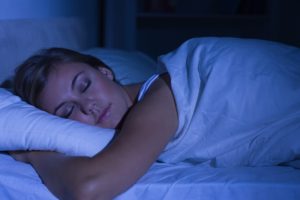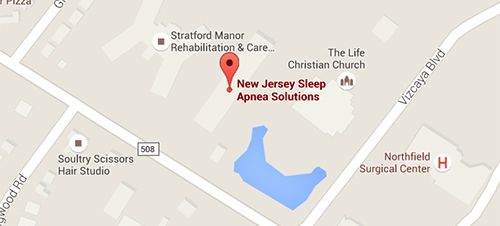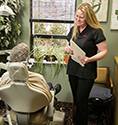Severe Hot Flashes Linked With Greater Risk of Obstructive Sleep Apnea
Submitted by New Jersey Snoring Solutions on Sun 01/28/2018 - 09:00
 A recent study from the North American Menopause Society (NAMS) suggests a link between severe hot flashes and a greater risk of obstructive sleep apnea (OSA) in middle-aged women. In this blog post, West Orange sleep apnea specialist Dr. Ivan Stein discusses the findings reported in the journal Menopause.
A recent study from the North American Menopause Society (NAMS) suggests a link between severe hot flashes and a greater risk of obstructive sleep apnea (OSA) in middle-aged women. In this blog post, West Orange sleep apnea specialist Dr. Ivan Stein discusses the findings reported in the journal Menopause.
Menopause and OSA
Symptoms of sleep apnea are often easy to spot in men, but in women the condition is under-diagnosed. While men are more likely to exhibit the obvious signs of OSA, such as snoring, women’s symptoms often remain hidden, which means they can suffer the consequences and health risks of OSA for years without receiving a proper diagnosis. Hot flashes and night sweats are common for midlife women, but are also symptoms of sleep apnea. Women may assume a poor night’s rest is due to the disruptions associated with menopause and may not consider the possibility of other sleep disorders.
Risks Associated with OSA
More than just interrupted sleep, OSA can pose a multitude of health risks. It is important to diagnose sleep disorders as early as possible, to prevent more serious problems down the road. Significant health concerns associated with sleep apnea include:
- High blood pressure (hypertension)
- Stroke
- Coronary heart disease
- Type 2 diabetes
- Certain cancers
- Liver problems
- Depression
- Obesity
Symptoms of OSA in Women
Many of the symptoms associated with sleep apnea in women are easy to overlook, or attributable to menopause or stress. Noticeable symptoms, such as fatigue and snoring, are good indicators of an underlying sleep disorder. However, other symptoms, such as anxiety, depression, insomnia and even headaches, could feasibly indicate any number of conditions. Stress and menopause both exhibit similar indicators. However, there are actions you can take to minimize the chance of sleep apnea affecting your life. Obesity and high blood pressure put people at an even greater risk of developing OSA, which means a lifestyle that includes a healthy diet and regular exercise can help lower the chance of chronically disrupted sleep.
Only a doctor can diagnose OSA and work with you to develop a comprehensive treatment plan. To schedule a consultation with Dr. Ivan Stein, call New Jersey Sleep Apnea Solutions at (855) 949-7667.







